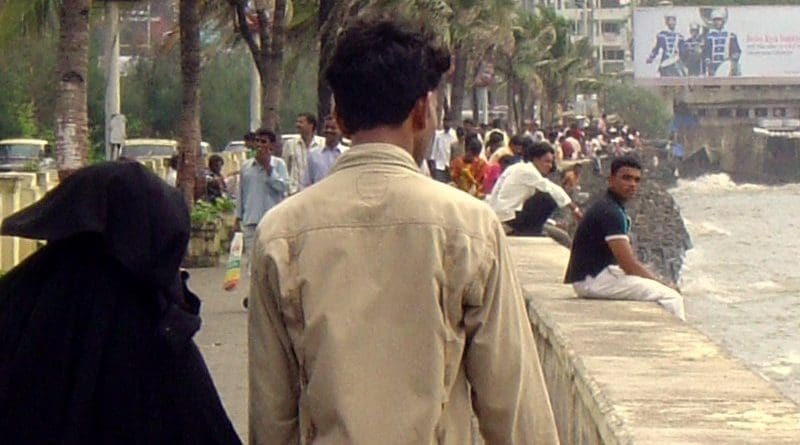The Political Dialectic Of Muslim Identity In India – OpEd
By Yanis Iqbal
With the rise of the Bharatiya Janata Party (BJP) in India, the Muslim population has been subjected to disinformation, hate speech, media manipulation, repression and attacks by vigilante groups. The marginalization of Muslims reached a new height in 2019 when the government enacted the Citizenship Amendment Act (CAA) that discriminates against Muslim refugees. It was intended to be used alongside a proposed citizen verification process that had already disenfranchised 1.9 million people in just one state, raising the specter of stripping millions of Muslims of citizenship. Consequently, mass protests erupted across the country.
These explosive dynamics foregrounded the question of Muslim identity, giving rise to various debates about this issue. The Left-Liberal response seems patronizing, asking Muslims to lower the tone of their religious identity so that they can put forward everyday demands like education and jobs. In this way, it is believed that they would succeed in replacing the discourse of religious difference with a narrative of common economic conditions.
Economy and Culture
The view that the anti-CAA movement prioritized Muslim identity over economic experiences is problematic. What we saw during the entire process of social churning was the claim that Muslim identity should be accepted as a legitimate basis for accessing fundamental civic rights. This articulation was necessary because the universal economic subject can’t be politically created unless cultural identities are also considered equal. In fact, the subject of anti-neoliberal welfarism does not truly exist. Instead, the economically oppressed subaltern is always culturalized and religiocized.
Insofar that mediatory forms of consciousness must obtain for the economy to operate, any project for the construction of an economic subject must pass through these significatory codes. Such a passage involves the fact that the universal economic subject has to be created upon the foundations of mutual recognition. However, mutual recognition depends upon the dislodgment of a Hindu-centric civil society and establishing the claims of a Muslim humanity. Such a process develops immanently within the religious relation: Muslim existence can become the cultural base of a religiously multi-sided equality to the extent that the specifically Muslim subject becomes conscious of itself and the Hindu recognizes the claim to humanity of those who exist as Muslims.
The fact that conditions for a universal economic subject do not yet exist and only emerge through self-active Muslim identity is ignored by the Left-Liberal front because it over-prioritizes the need to soothe the anxieties of the Hindu majority. In order not to trigger the majoritarian mindset of Hindus, Muslims are advised to shun any open display of religion and instead emphasize common economic grievances. But this is a merely half-hearted commitment to Muslim empowerment since the normalization of Hinduism as the dominant religion of India is not definitively challenged. Further, there is no specific space where Hindus and Muslims can recognize and understand each other. The Muslim’s religious commitments are simply displaced, forgetting that it is necessary to organize the encounter of various religious commitments against communalism.
Future
As is evident, communal polarization can’t be dismantled by a simple and sudden assertion of common economic conditions but rather must be deconstructed laboriously in the same manner it was constructed, in the same subjective ground it covered. In other words, the universality of a democratic economic identity is based upon the reciprocal releasement of religious differences – the subjects remain independent in their identity, and are identical in their independence. Crucially, religion can reflect the true identity of the subaltern and become a basis for recognition only when it embodies their basic aspirations and becomes a projection of the best possibilities of human activity – labor and productivity, intelligence, imagination and so on.
In the Indian context, the economic interests of religious subjects are found in the composite culture that is located at the level of life-worlds. A political intervention geared toward mutual recognition has to extract this rational kernel from the mystical shell of religion. The ways in which this is being spontaneously done in response to the pressures of Hindutva is visible in the Hijab row that has gripped BJP-ruled Karnataka. In this southern state, there have been incidents of Muslim girls being banned from attending college for wearing hijab; when they insisted on exercising their right to do so, Hindu students donned saffron scarves to intimidate them, raising slogans of “Jai Shri Ram (praise Lord Ram)” while going to college.
An interim order by a three-judge bench of the Karnataka High Court has said that until it delivers its final verdict, students should not wear religious clothing to class if their college has a prescribed uniform. Apoorvanand notes that this order “has validated a false equivalence between the rights of those who have only recently started donning saffron scarves and turbans to intimidate women students who have been wearing the hijab as part of an age-old convention…Indirectly, it has put the onus of restoring peace on Muslims while allowing the state to go scot-free.” The events in Karnataka demonstrate that Muslim women’s positing of their religious identity as a valid mode of gaining education (an often-applauded common economic goal) is deeply troubling for Hindutva.
By practicing a form of Muslim self-assertion that is oriented toward economic universality (modern education), the Muslim women of Karnataka have fused religion and secularity, culture and economy, thus dissolving the dichotomies presupposed by Left-Liberal arguments. This two-pronged proclamation of Muslim identity and civic rights needs to be sustained so that we can both decenter the self-aggrandizing ego of the Hindu and build intra-subaltern linkages.

